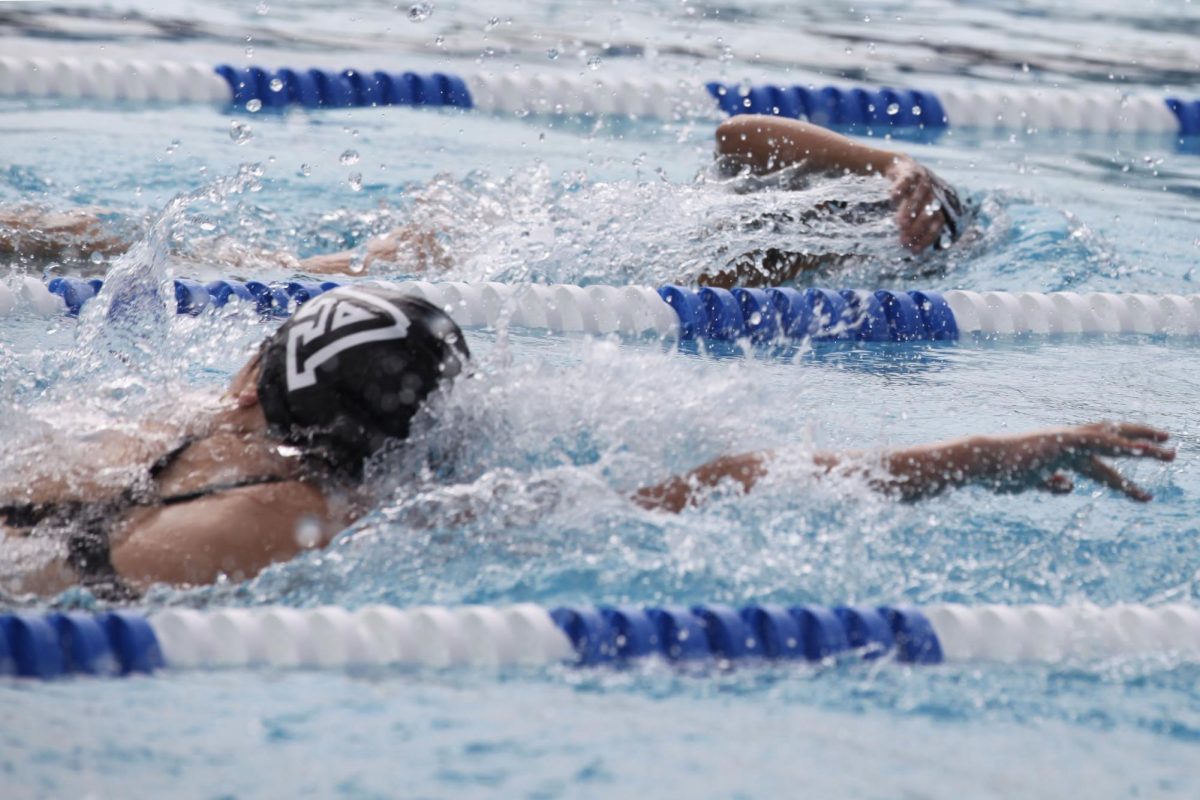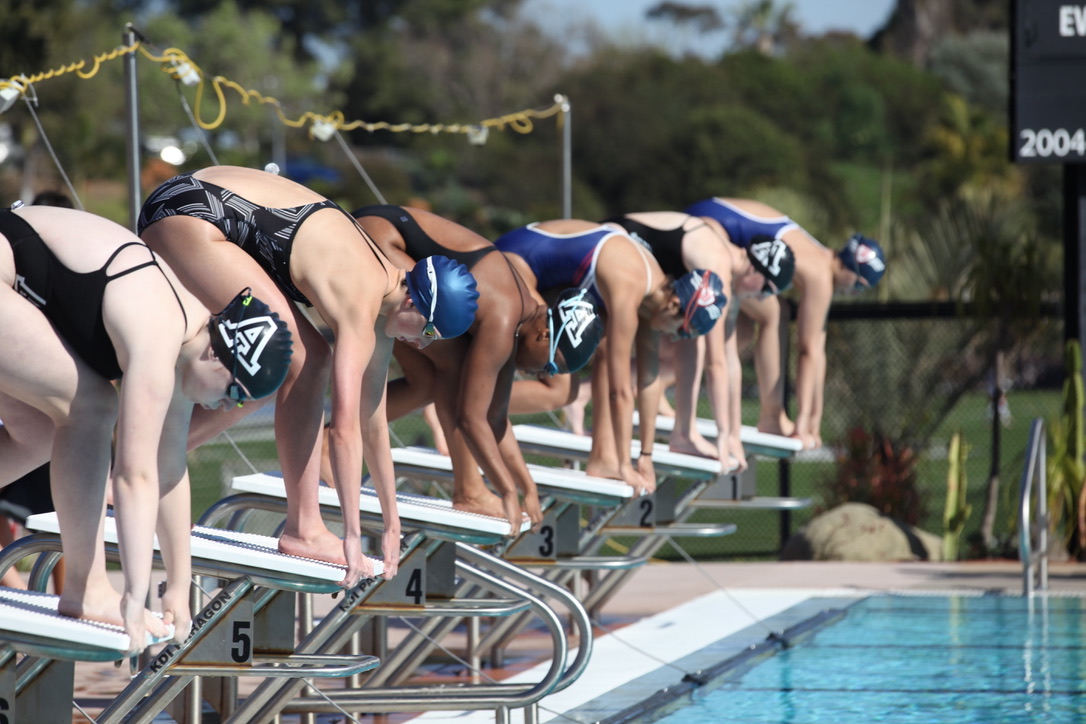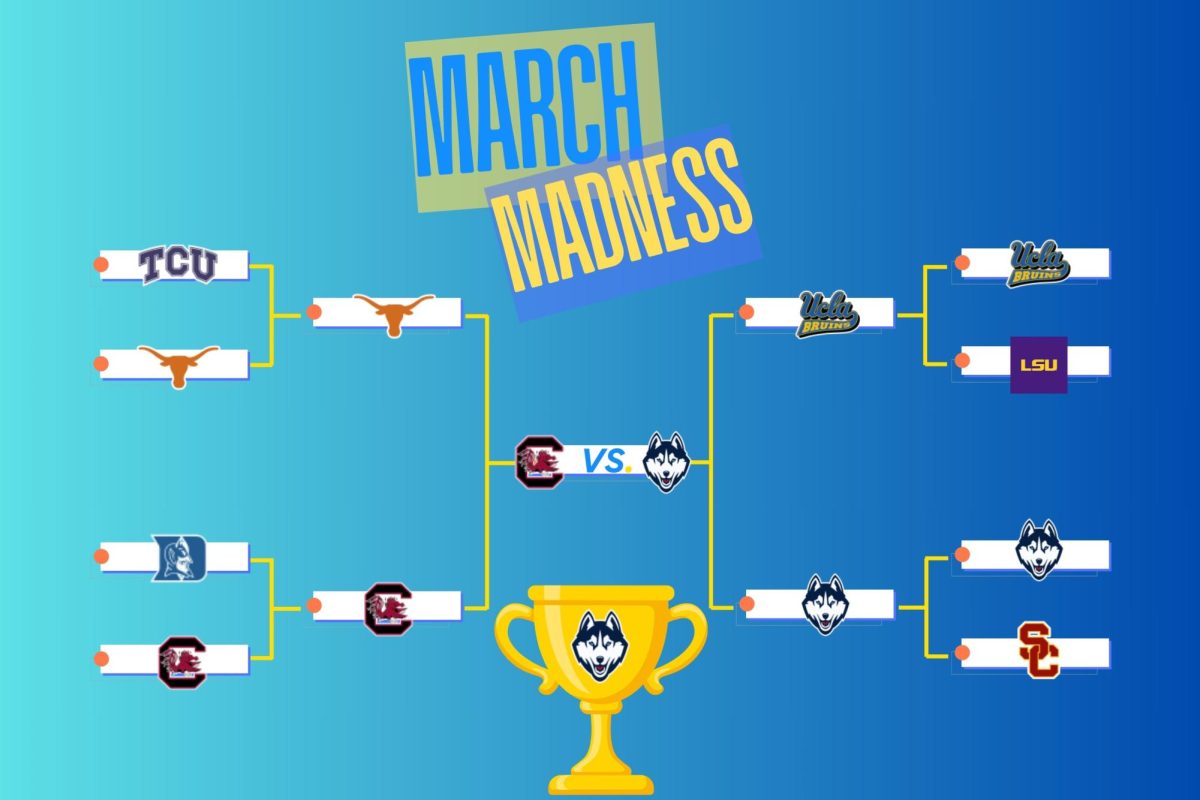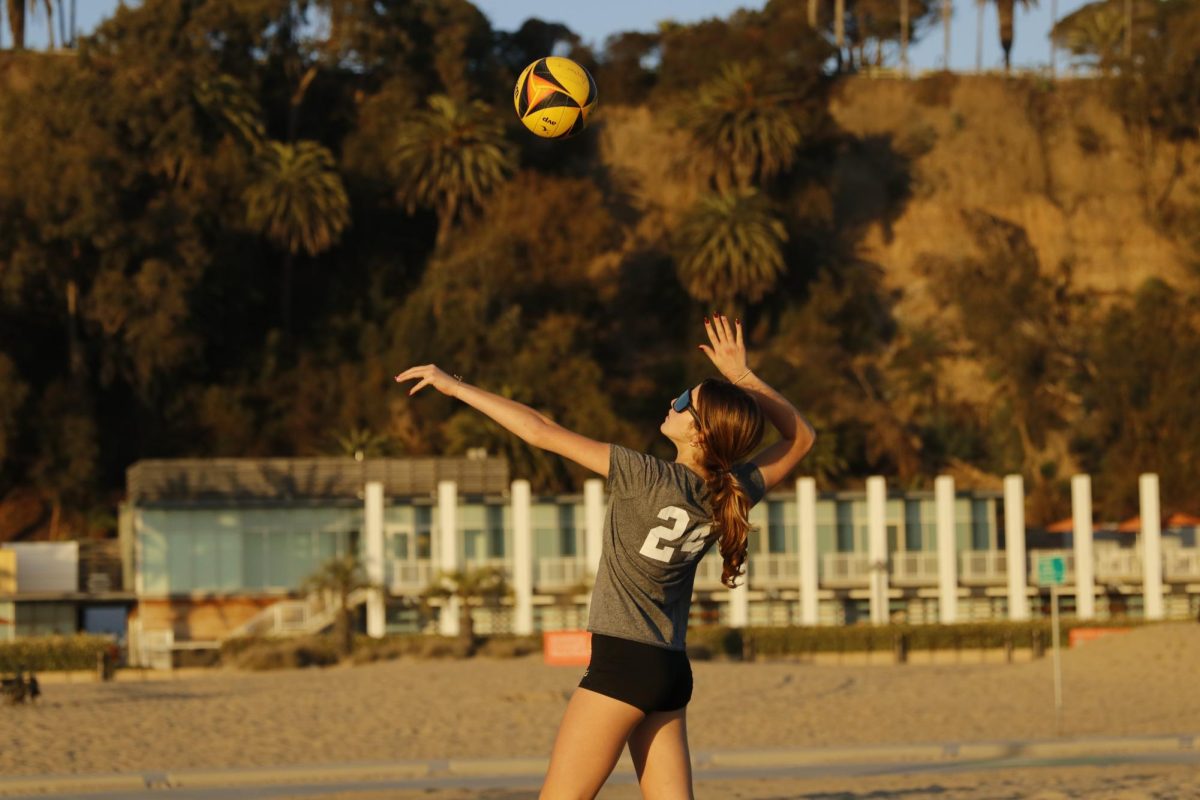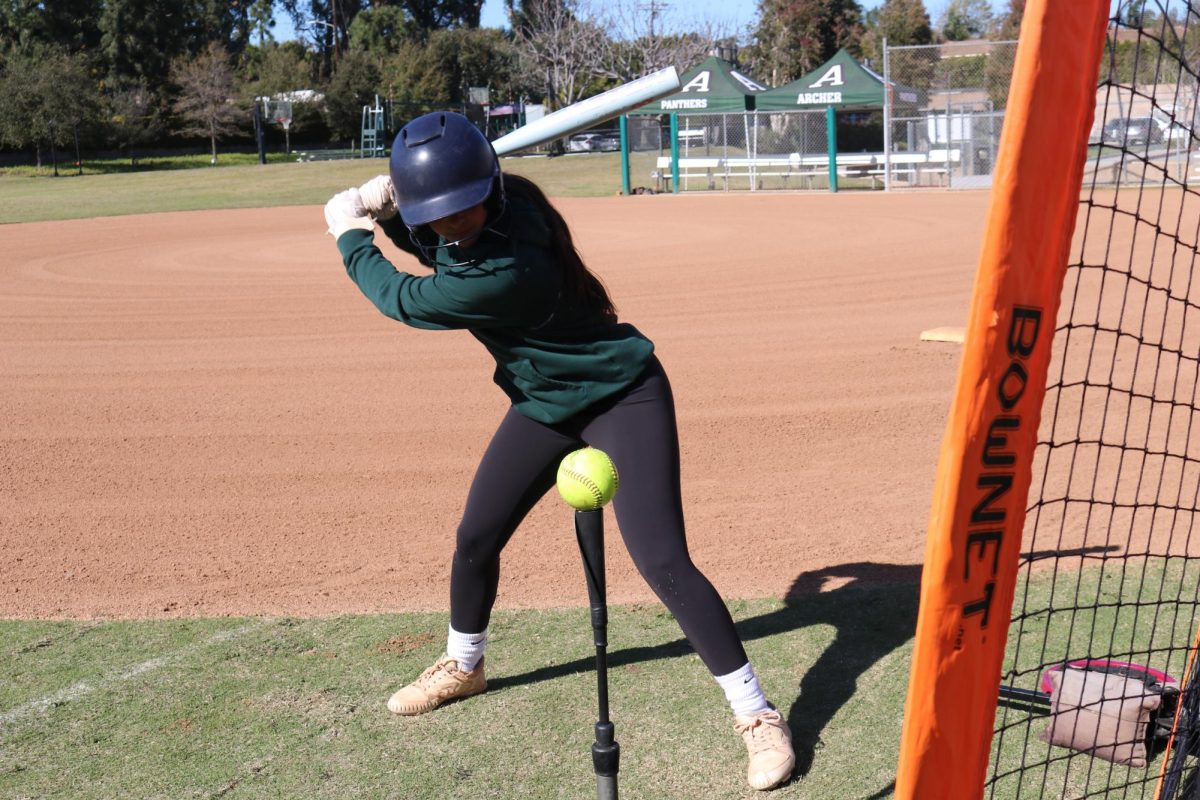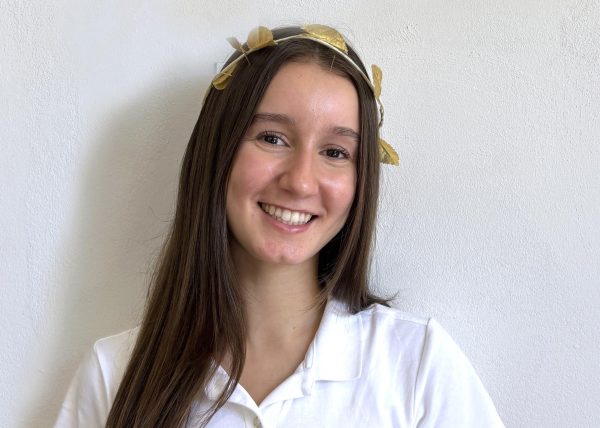Still dark outside, the middle school swim team wakes up at 5 a.m. on Tuesdays and Thursdays to get ready for their 6 a.m. practice at UCLA. In part due to these early morning practices, the team was named the Pacific Basin League Champions Sunday, Nov. 3, and placed first in all of their meets during the season. Head coach Wilma Wong said the athletes continually showed up to early morning practices with a great attitude.
According to the Washington Post, exercising can help raise your brain-derived neurotrophic factor, or BDNF, which promotes the brain’s creation and maturation of cells and synapses.
“Going to exercise before you go to school is actually great for your BDNF,” Wong said. “And when you have that going, you become smarter as well.”
Eighth grade students Sadie Wolkove and Marin Hennegan were the team captains. They often cheered on their teammates and ensured each swimmer knew where they were supposed to be during meets.
“Even if you’re not actually telling people what to do, it’s fun to know people are looking up to you,” Wolkove said. “Being able to lead without having to actually be in charge of coming up with practice sets.”
Wong, along with assistant coaches Linda Chang and Alex Havton, teach their swimmers certain strategies to calm themselves down before a race, such as tapping, or Emotional Freedom Technique (EFT) — a method that includes tapping specific points on the face to reduce stress and anxiety. The coaches are also able to support them in improving their swim technique, regardless of the stroke they are focusing on.
“We have really good coaches,” Hennegan said. “[they] know what the right exercises are to make sure that we improve in whatever skill we’re having trouble with,.”
The athletes on the team have varying skill levels. Wong said the best part of her job is getting her swimmers involved in a sport that will last them a lifetime.
“If I can get a good foundation now, then it leads to great swimming in high school,” Wong said. “I try to really hone the basics, get the kids who may or may not be able to swim, and some of those kids go on to swim all six years [or] seven years.”
During practice, athletes are divided into groups based on skill level. Wolkove said the practices are personalized for each athlete to allow for individual growth.
“I had no background in swim,” Hennegan said. “Now, I’m on a club team because of the work that we did.”
Hennegan said there is a lot to remember before a race to ensure the swimmer is not disqualified. Disqualifications can include false starts or performing a stroke incorrectly. Wolkove said that the sport can often seem simpler than it really is.
“It just looks like you’re swimming,” Wolkove said. “It’s all about being very focused on what you’re doing when you’re doing it.”
Wong said she often reminds the swimmers that they are better than they think they are. She said she has noticed negative self-talk amongst her athletes and she believes how you speak to yourself can limit your performance in the sport.
“If you always think you’re not very good at something, then that’s exactly what you get,” Wong said. “But if you can give a little bit every day, 1% better every day, then you are going to continue to get better.”



